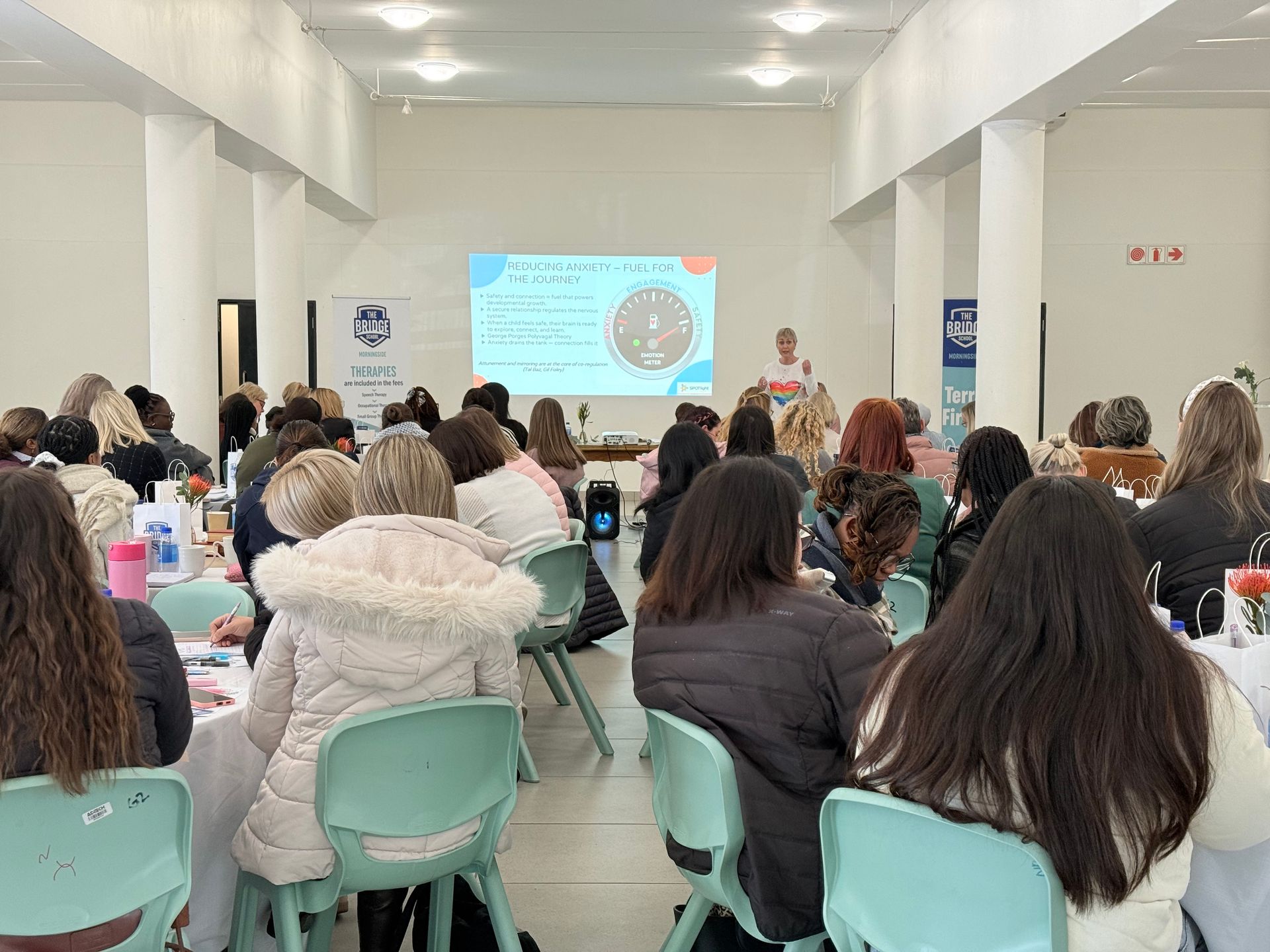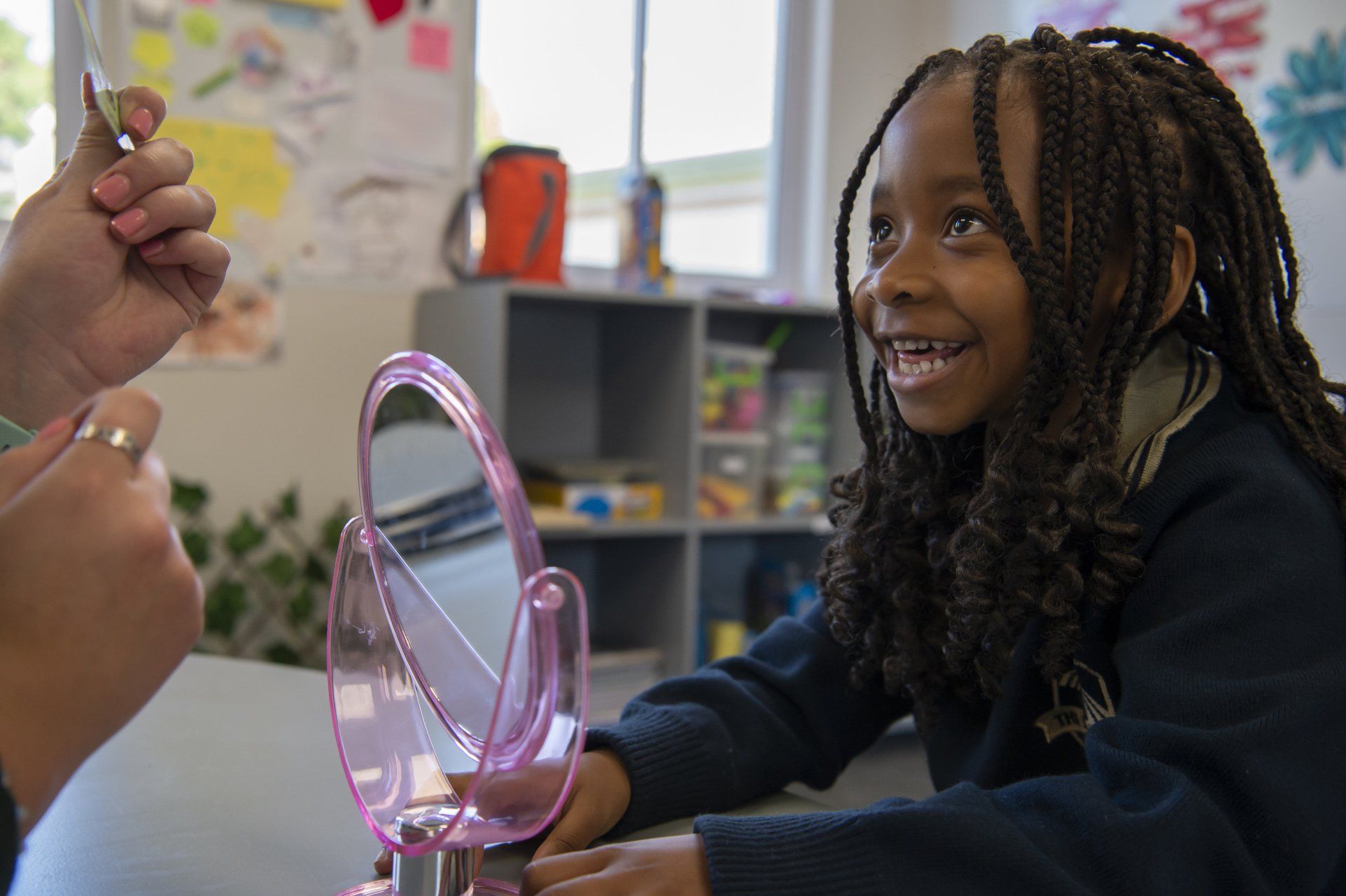Building a Strong Support Network for Your Neurodiverse Child
Raising a neurodiverse child is a journey filled with unique joys and challenges. From learning the best ways to support their development to advocating for them in social, educational, and community settings, the experience can be profoundly rewarding but also at times, isolating.
The truth is, no parent can—or should—navigate this journey alone. And building a strong support network is essential to ensuring the best outcomes for your neurodiverse child, says Renie Sutherland, Principal at The Bridge Assisted Learning School Morningside.
BUILDING THE VILLAGE
FAMILY AND FRIENDS
Your closest support network often begins with family and friends. These are the people who care deeply about you and your child, and many will want to help, even if they don’t fully understand your child’s needs at first.
Educate and share: Share information about your child’s neurodiversity in simple, clear terms. Help them understand how they can support your child and why certain rules and regulations are necessary.
Set boundaries as needed: While family members may mean well, they might unintentionally say or do things that do not align with your child’s needs. Communicate openly about what is helpful and what is not.
Ask for specific help: Don’t hesitate to ask for concrete assistance—like babysitting during appointments, attending school meetings, or simply being there to talk. People are often willing to help when they know exactly how.
SCHOOL TEACHERS AND STAFF
A child’s school plays a significant role in their development, and building strong relationships with teachers and staff is essential for creating an inclusive learning environment. Communication and collaboration with school staff can ensure your child’s needs are met in the classroom.
Attend meetings regularly: Parent meetings to discuss your child’s goals and needs are the first steps to building community and aligning expectations. Bring a clear list of concerns and desired supports to discuss with your child’s teacher.
Stay in touch: Regular updates between parents and teachers can provide insights into your child’s progress, strengths, and areas for improvement. Parents do not have to wait for formal parent meetings.
Collaborate on solutions: Approach teachers as partners. Ask them about strategies that have worked with other students and be open to suggestions. An ongoing, cooperative relationship benefits everyone involved.
THERAPISTS AND SPECIALISTS
Therapists and specialists play an invaluable role in your child’s growth. Occupational therapists, speech therapists and others bring professional expertise that can help your child thrive. Establishing a good relationship with therapists can lead to more effective support strategies. But be mindful that therapy is not a magic cure; it is a process that builds skills over time.
Share your goals: Let therapists know what you hope your child will achieve. Being transparent about your family’s priorities can help guide their approach.
Ask for practical exercises: Many therapists can suggest activities and strategies to use at home, which can reinforce the progress made in sessions.
Encourage collaboration: Ask therapists to communicate with teachers and other professionals to ensure that everyone involved is on the same page about your child’s needs and progress.
PEER MENTORING
Peer mentoring programmes are excellent ways for neurodiverse children and parents to learn from older peers who share similar experiences.
Neurodiversity support groups: These groups focus on empowering neurodiverse individuals. One such group is Autism South Africa, whose aim is to have all autistic people reach their potential throughout their lives. Another is SADAG, which has more than 160 free support groups.
Parent-led support initiatives: Connecting with other parents of neurodiverse children can be a lifeline. These parents understand the highs and lows, and they can offer empathy, practical advice, and resources that are difficult to find elsewhere.
SELF-CARE AND SUPPORT
Parenting a neurodiverse child is rewarding, but it can also be physically and emotionally demanding. Prioritising self-care ensures you are able to show up fully for your child.
Schedule personal time: Even small amounts of time for activities you enjoy can refresh your mind and lift your spirits.
Seek out your own support group: Whether it is friends, family, or a parent group, talking with others who understand can reduce stress and provide fresh perspectives.
Find counselling if needed: A therapist can help you process the emotional aspects of parenting a neurodiverse child and provide strategies for maintaining balance.
“Raising a neurodiverse child is a journey that is most successful when shared with a network of family, friends, teachers, therapists, and community,” says Sutherland.
“The most powerful thing you can do for your child is to surround them—and yourself—with people who offer support, understanding, and encouragement. Building this village takes time and effort, but it can be life-changing for both you and your child, creating a foundation of love and resilience that will help them grow into their unique strengths and abilities. Remember, you don’t have to do it all alone—your village is out there, ready to support you every step of the way.”












